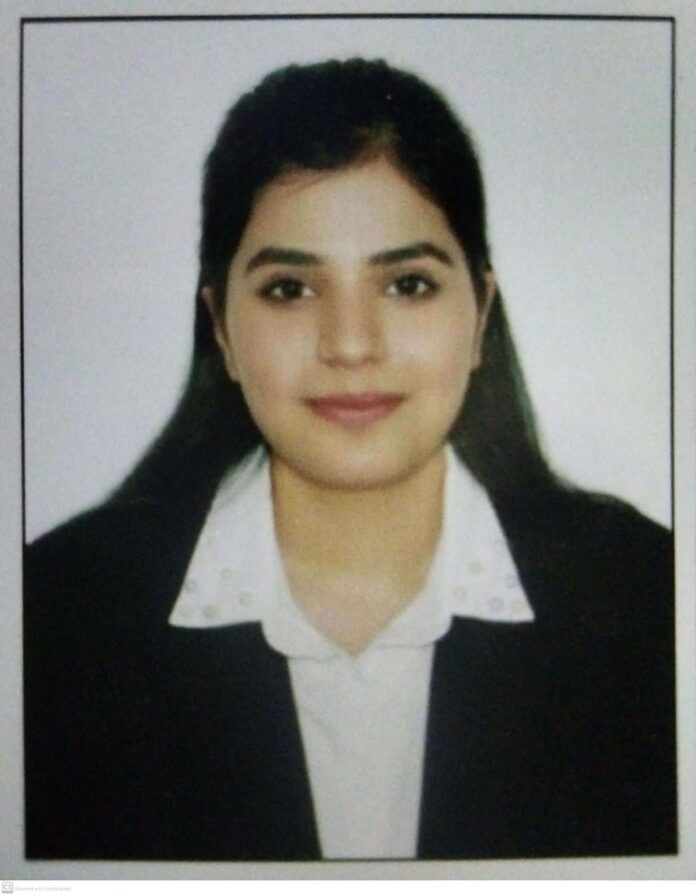Sameen REHMAN
A disturbing issue recently came to light on social media, regarding a YouTube video featuring Hasan Iqbal Chishti, a resident of Samundri, Punjab. The video went viral, attracting 60,000 views and causing widespread outrage among the public, especially women’s rights activists. Chishti’s video is characterized by abusive language and misogynistic content, specifically targeting girls seeking education, work, and passionate about singing and dancing. This article examines the legal and social implications of Chishti’s actions, highlighting the urgent need for intervention by relevant authorities.
The Content and Its Impact
Chishti’s solo performance in the video spread negative propaganda against women’s education, encouraging viewers to refrain from educating women. The language used by him is objectionable and constitutes hate speech, undermining women’s fundamental rights and having a detrimental impact on their mental health and social status. As we all know education is a fundamental right and the foundation for women’s development and empowerment in Pakistan. It is vital to achieving gender equality, improving economic opportunities and promoting a progressive society. Content like Chishti’s video threatens this progress by perpetuating harmful stereotypes and encouraging discriminatory practices.
Legal Violations
The negative propaganda against women’s education propagated by Chishti violates many laws and regulations in Pakistan, starting with Article 25-A of the Constitution of Pakistan. This states that the state must ensure free and compulsory education for all children between 5 and 16 years of age. Chishti’s video actively discourages girls’ education, which is in direct contradiction to this constitutional provision. Its actions create a hostile environment for girls seeking educational opportunities, impacting their psychological health and preventing them from pursuing their right to education.
Apart from the constitutional violations, Chishti also violated several sections of the Prevention of Electronic Crimes Act (PECA) of 2016. Under Section 20, which deals with insulting the dignity of a natural person, the video Chishti’s website also contains false and defamatory statements that damage the reputation of women, constituting online defamation and harassment. Article 21, which provides for offenses against the modesty of individuals and minors, was applied because the video offended the modesty of women by implying that their pursuit of education and participating in cultural activities such as singing and dancing is shameful. Furthermore, Chishti’s actions amounted to cyber harassment within the meaning of Article 24, as he used information systems to threaten, harass, and coerce women to abandon their educational and cultural activities. The continued dissemination of hateful content targeting women demonstrates a blatant violation of these provisions, requiring legal action to protect the dignity and rights of women.
Violations of the Pakistan Penal Code (PPC)
Chishti’s actions also violate multiple sections of the Pakistan Penal Code:
- Section 500:Defamation, which punishes anyone who defames another person.
- Section 504:Intentional insult with intent to provoke a breach of the peace.
- Section 509:Word, gesture, or act intended to insult the modesty of a woman.
The language and messages used in Chishti’s video were intended to insult women’s modesty, especially including the use of derogatory terms such as “Kanjeri”. His words and gestures are deliberately designed to degrade and humiliate women, attacking their dignity and self-respect.
Psychological and Emotional Abuse
In addition to this Chishti’s videos constitute psychological and emotional abuse by propagating harmful stereotypes, spreading misinformation, and verbally attacking women who pursue education, work and participate in cultural activities. This type of content is designed to degrade women, cause emotional distress and potentially lead to harmful psychological effects. The Punjab Protection of Women from Violence Act, 2016 provides legal remedies for women facing such abuse, which includes various forms of violence, including psychological and emotional harm.
Role of the National Commission on the Status of Women (NCSW)
However, the National Commission on the Status of Women (NCSW) is empowered to monitor, review and ensure implementation of measures to protect women from discrimination and violence, including against crime enmity. Chishti’s videos, which promote hate speech against women and discourage their participation in education and culture, fall under the purview of NCSW. The Commission can initiate investigations, recommend legal action and advocate for policy changes to protect women from such discriminatory and violent content.
The National Action Plan 2014
The 2014 National Action Plan (NAP) highlights the importance of countering hate speech and extremist content, whether online or offline. Hence, videos or type of content similar to Chishti’s video falls under the category of extremist content that NAP aims to combat. Interpreting the NAP in relation to Chishti’s actions, it is clear that his conduct not only violated specific laws such as PECA and PPC, but also contradicted the broader national strategy to counter extremism and hate speech in Pakistan.
Call to Action
In light of the above information, it is important that the Ministry of Human Rights, the National Commission on the Rights of children and the Ministry of Interior to take the following measures:
- Investigate and Prosecute:Initiate a thorough investigation into Hasan Iqbal Chishti’s activities and prosecute him under the relevant provisions of the law.
- Remove Harmful Content:Work with digital platforms to ensure the immediate removal of all such videos and prevent future dissemination of similar content.
- Public Awareness Campaigns:Launch campaigns to educate the public about the importance of women’s education and the legal repercussions of hate speech.
Hasan Iqbal Chishti’s dissemination of hateful and discriminatory content through his videos not only violates many provisions of Pakistani law but also goes against the principles laid down in the National Action Plan 2014 to combat extremism and hate speech. His actions undermine efforts for gender equality, women’s empowerment, and the basic right to education guaranteed by the state. Swift and decisive action by relevant authorities will ensure respect for women’s legal rights and strengthen Pakistan’s commitment to gender equality and human rights. By addressing this issue quickly, we will ensure that everyone can live and thrive without fear of discrimination or violence.
Writer is Human Rights Advocate




